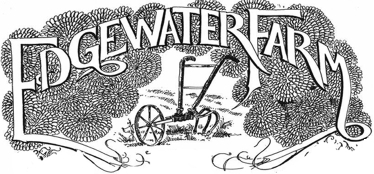We have been in a drought this summer, and its been a struggle. It is coupled with the fact that our field crew is understaffed as our Jamaican H2A workers have all been delayed by at least a week. One gent whom was suppose to be here on June 5th still hasn’t gotten his “ok” to come up. This is due to politics, bureaucratic turf wars in both Jamaica and the US. The end result is a very tedious and expensive SNAFU for us.
But despite these challenges we really haven’t lost much in the way of crops. No yet. On occasion the chips do fall our way. We are experiencing a very nice blueberry crop this year. Sweetness is up, as well as the size and plant production. We would like to take the credit as farmers, but the sorry truth is that we can’t honestly assign it to our cultural wizardry or management practices. It just… is. Alternately a confluence of weather events and oversights on our part resulted in a mediocre strawberry crop, a crop in which we invested a lot time and money. But the sun has produced the sweetest corn, tomatoes and melon is many years. Our potato crop this year has had tough sledding, however we are looking a potential bumper crop of other fall vegetables.
A summer drought such as this years’ seems to defy and thwart our best efforts. Why does Dave Pierson tell me the storm front produced 1.65” inches of water on his farm and we don’t get a drop? Closer to home Ray will report 3/4” of rain when we only have .2” in our rain gauge. I have used an expression when explaining to lay people that it takes a bit of Zen temperament to accept all the things in agriculture that are out of reach or control. It is simply that we farmers are not “ in the driver’s seat.”
We all think that technology will solve all our problems. And technology has given us some great achievements. But I think the climate change and the pandemic have amply demonstrated that we are often wrestling with natural forces that may well exceed our ability to cope with or begin to control. Forces natural as well as unnatural forces: politics, supply, input costs. There is the issue of invasive species. There may have been some slowing down the advancement of invasive species by identifying them and trying to contain them, but so far as I can see garlic buckwheat, purple loosestrife, Japanese knotweed and Norway Maples have clearly settled in among us along with the northward march of ticks. I don’t believe we have the ability, technology or fortitude to stop them. Covid…There maybe periods where we have lesser rates of infection, and periods of mask free socializing. But the simple virus Covid is quicker, more persistent and adaptable than our medical technology, so it is probably a good idea to accept it for what it will apparently be.
Farming is all about coping and accepting the march of natural forces, and trying to adapt to them, all while trying to earn a living. There could be an upside resulting from all these natural forces. There are always hidden benefit to counter the down side. Today’s invasive species could well be tomorrow’s beneficial pollinator, tomorrow’s new food group, raw material or hot new ornamental. Today the Norway Maple is maligned, but in an era of warming climate when the northern limits of the sugar maple are advancing ever northward, we may be welcoming the ornamental and perhaps economic products of the Norway Maple. As hated as Japanese knotweed is, it is a tremendous late season source of nectar and pollen for pollinator and beneficial insects, especially honeybees, whom never had a good late season nectar and pollen source before knotweed arrived. I guess we will have to develop the right perspective and attitudes. But I still wish we could have a rainy day that leaves us with two inches in the rain gauge.
